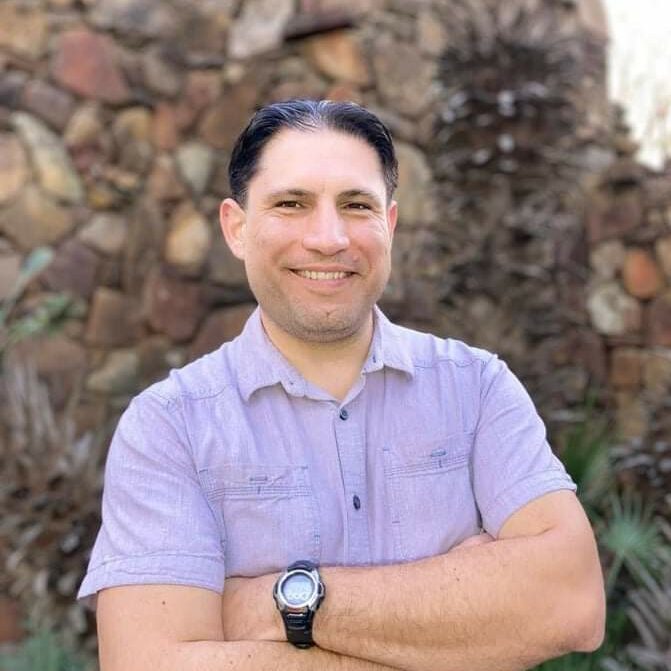According to the National Alliance on Mental Health (NAMI), 47.2% of U.S. adults with mental illness received treatment in 2021. If you’re struggling with your mental health, don’t hesitate to reach out for help. Therapy can be a valuable resource for people of all ages and backgrounds. With the right therapist, you can work towards becoming a healthier, happier version of yourself.
Read on to learn more about the power of therapy and if it works for everyone.
What exactly is therapy?
Therapy, also known as psychotherapy or counseling, is a safe and confidential space where you can talk openly about your thoughts, feelings, and experiences with a trained professional known as a therapist or counselor. It’s like having a compassionate and understanding friend but with the added benefit of expertise in mental health.
Some common mental health issues that could be helped with therapy include:
- Panic attacks: These sudden and intense episodes of fear can cause physical symptoms such as chest pain, dizziness, shortness of breath, and sweating. They can be terrifying and debilitating, often leading to avoidance of situations that trigger them.
- Depression: Depression is a mood disorder that causes sadness, hopelessness, and worthlessness. It can also cause physical symptoms such as fatigue, sleep problems, and changes in appetite. Depression can be very disabling, making functioning at work, school, or in relationships difficult.
- Social anxiety: This form of anxiety is a fear of social situations that can cause intense anxiety and fear.
- Substance use disorders: This mental disorder misuses alcohol, drugs, or prescription medications
- Post-traumatic stress disorder (PTSD): PTSD can develop after you experience or witness a traumatic event.
- Eating disorders: Eating disorders include anorexia nervosa, bulimia nervosa, and binge eating disorder.
These are just a few mental health issues that can benefit from therapy. If you are struggling with a mental health issue, seeking professional help is important.
Why is therapy important?
Mental health is just as important as physical health. After all, our minds and bodies are connected. “Why is going to your primary care doctor important? You go to them to get help with a problem. Therapy is the same,” says Grow Therapy provider Chance Reynolds. “Therapy is important because it helps you solve problems that often don’t resolve on their own. For example, without therapy, deeply seated fears, past trauma, anxieties, and phobias can feel like life sentences. With therapy, they don’t have to be.”
Who can benefit from therapy?
Anyone can benefit from therapy, regardless of age, gender, or background. Treatment can be helpful for people who are struggling with:
- Mental health conditions such as depression, anxiety, or addiction
- Significant life changes, such as a new job, a move, or a divorce
- Relationship problems
- Grief and loss
- Personal growth and self-discovery
Therapy can be helpful for anyone who is looking to improve their mental health and well-being. It is important to be open-minded and put in the effort it takes to feel better.
How does therapy work?
Therapy works by helping you to understand your thoughts, feelings, and behaviors. During therapy sessions, the therapist will listen to you and help you explore your experiences. They will not judge you or tell you what to do but offer guidance and support. Everything you share with your therapist is private. “There are multiple therapy modalities and theories that all have evidence-based research to back them up,” says Reynolds. “In complete generalities, therapy works by getting a perspective outside of yourself and shifting your beliefs and thoughts to match a healthier view of yourself and your situation.”
There are many different types of therapy, and the therapist will tailor the approach to your needs. Some common types of treatment include:
- Cognitive-Behavioral Therapy (CBT): CBT helps you to identify and change negative thoughts and behaviors.
- Psychodynamic Therapy: Psychodynamic therapy helps you to understand your unconscious thoughts and emotions.
- Acceptance and Commitment Therapy (ACT): ACT helps you to accept your thoughts and feelings and to commit to living a meaningful life.
How long does therapy last?
The length of therapy varies depending on the person. Some people may only need a few sessions, while others may need to continue for months or years. The therapist will work with you to set goals and to determine how long you need to see them.
How do I find a therapist?
There are many ways to find a good therapist. You can ask your doctor for a referral or search online. It’s essential to find a licensed and experienced therapist in the type of therapy you’re interested in. You will also need to decide if you want in-person or online therapy.
Understanding the purpose and benefits of therapy
Therapy can help you in many ways, including:
- Improving emotional well-being: Therapy can help you identify and process your emotions healthily.
- Developing self-awareness: Therapy can help you gain insights into your beliefs, values, and motivations.
- Improving coping skills: Therapy can help you learn healthy coping strategies to deal with challenges in life.
- Enhancing problem-solving abilities: Therapy can help you develop more adaptive problem-solving skills.
- Maintaining mental health and preventing worsening of conditions. Sometimes, successful therapy is simply keeping a situation from getting worse, like in the cases of severe depression.
Counseling can take place in various formats, including one-on-one, family, or couples therapy, or in group settings, and it’s beneficial for people of all ages. Typically, sessions occur weekly and last around 45 to 50 minutes.
Does therapy work for everyone?
Therapy as a treatment option is a powerful tool for improving mental well-being, but its effectiveness can vary depending on many things. “It absolutely can work for everyone. There are mountains of evidence at this point to show the truth of that. However, there are many variables that can create barriers to therapy working,” says Reynolds.
- The type of therapy: There are many different types of therapy designed to address a specific set of issues. For example, CBT is often used to treat anxiety and depression, while psychodynamic therapy is more commonly used to address personality disorders.
- Therapist’s skills and experience: A good therapist can create a safe and supportive environment where you feel comfortable exploring your thoughts and feelings. They will also be able to tailor the therapy to your individual needs. On top of this, it’s important to have a good therapist-client relationship, where you feel compatible. “Finding a good match and building the therapeutic relationship is important for both parties,” says Reynolds.
- Your willingness to participate: Therapy is a two-way street. You’ll need to be willing to share your thoughts and feelings and do the work required to progress.
- Your expectations: It’s essential to have realistic expectations about what therapy can achieve. Keep an open mind and be patient.
Does this mean that therapy doesn’t work for everyone?
Not necessarily. Therapy can be effective for many mental health conditions, but it’s important to remember that it’s not a cure-all. Several factors can influence the effectiveness of therapy, and not everyone will experience the same results.
Here are a few things you can do to increase the chances that therapy will be effective for you:
- Find a therapist who is a good fit for you.
- Be willing to be open and honest with your therapist.
- Be patient and persistent.
If you need help figuring out where to start, many resources are available to help you find the right therapist.
Recognizing if therapy is right for you
Deciding whether therapy is right for you can be a personal and complex decision. Here are some factors to consider:
- Your specific concerns: What are you struggling with? Are you experiencing anxiety, depression, relationship problems, or something else?
- The impact on your daily life: How are your mental health concerns affecting your everyday life? Are you having trouble functioning, enjoying life, or maintaining relationships?
- Your willingness to change: Therapy requires active participation and a commitment to personal growth. Are you open to making changes in your life?
- Availability and affordability: Therapy can be expensive, and only some can access it. Consider the cost and availability of therapy in your area.
- Your gender: Statistics show that women are more likely to seek therapy than men. In the United States, 25.6% of women received some form of mental health treatment in the past 12 months, compared with 14.6% of men. This may be due to several factors, including societal norms and cultural expectations. However, it’s important to remember that the decision to pursue therapy should be based on your needs and not solely on gender.
If you’re considering therapy, you must talk to your doctor or a mental health professional. They can help you assess your needs and decide whether treatment is right for you.
Here are some additional tips for deciding if therapy is suitable for you:
- Do your research: Learn about different types of treatment and how they can help.
- Talk to friends or family members who have been to therapy: Get their insights and advice.
- Schedule a consultation with a therapist: This will allow you to meet the therapist and see if they’re a good fit for you.
Therapy can be a helpful tool for improving your mental health. If you’re struggling, don’t hesitate to reach out for help.
What to do when therapy isn’t for you
Don’t give up if you’ve tried therapy and it hasn’t worked for you! There are other forms of support and treatment available. Here are some helpful steps to consider:
Reflect on your experience
Take some time to reflect on your therapy experience. What didn’t work for you? Was it the therapeutic approach, the relationship with your therapist, or the lack of progress toward your goals?
Communicate with your therapist
If you feel comfortable doing so, discuss your concerns with your therapist. Honest communication can help address potential barriers and allow the therapist to modify their approach or suggest alternative methods.
Explore alternative support
There are many other forms of support available besides therapy, such as:
- Support groups
- Coaching or mentoring
- Holistic approaches such as yoga or meditation.
Consider the age factor
The prevalence of mental illness varies by age group. For example, the highest mental illness rate is among young adults aged 18 to 25 years. This means that young adults may have different needs and preferences regarding therapy or support. You may need to find a therapist who specializes in people your age.
Don’t give up on therapy completely
If you’ve had a bad experience with therapy, it doesn’t mean therapy won’t work for you. There are many types of treatment, and what works for one person may not work for another. It’s important to find a therapist who you feel comfortable with and who uses an approach that’s right for you.
Build a better life
Therapy can be a game-changer, but it’s not one-size-fits-all. Your unique needs and experiences shape how therapy can help you. Be open to different approaches and options, and find a therapist who fits your needs. With the proper support, you can start to heal and build a better life for yourself.
If you’re looking for a therapist, Grow Therapy can help. Grow Therapy is a platform that connects you with therapists who are experts in different types of therapy. You can search for therapists based on your needs and goals and even read reviews from other users.
Finding the right therapist can be a journey, but it is worth it. With the proper support, you can start to heal and build a better life for yourself.

